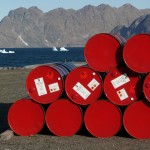After failure to reach production freeze producers are ready to increase exports
Had a production freeze agreement been reached among OPEC and non-OPEC producers last Sunday, it would have marked the first time in 15 years that Russia cooperated with the oil producing group. While oil prices have continued to hold above $40 per barrel despite the lack of an agreement, some of the countries represented in Doha are now discussing increasing production further. Russia looks to continue surpassing its post-Soviet records, while Saudi Arabia said could “immediately” raise production by 1 MMBOPD.
Many analysts called the production freeze a largely meaningless gesture in terms of supply and demand, with little spare capacity left to add to markets if no deal was struck, but Russia is now considering increasing its production 100 MBOPD to 10.81 MMBOPD by the end of 2016, reports Bloomberg.
“And why not?” Deputy Energy Minister Kirill Molodtsov asked at the National Oil and Gas Forum in Moscow. “It’s possible.”
Molodtsov seemed less concerned with the impact continuing to add to the global glut might have, a sentiment that appears to be shared by Russia’s Prime Minister Dimitri Medvedev.
“The economy can be stable without major oil profits, and we have proved that,” he told Russian lawmakers. “Of course, we have much left to do to consolidate those positive changes.”
Russian operating costs do not exceed $4 per barrel, making it very easy for them to continue increasing production, Maxim Nechaev, director for Russia at IHS Inc. said at the National Oil and Gas Forum. “Irrespective of whether the oil price is $45 to $50 per barrel or goes even lower to $35 per barrel, we’ll probably see an even more significant output increase this year than last year.”
Vice President of Strategic Development Leonid Fedun said supply could decline as soon as next year, however, if tax burdens on oil companies are not eased. The government raised the oil production tax and shelved plans to lower export duties for crude and oil products to help bridge the gap in the countries budget deficit following the decline in oil prices.
Even without a production freeze deal, the Doha meeting benefited Russia, said Fedun. Oil prices rose from below $30 per barrel to more than $40 on the news that an agreement might be reached. “Russia received at least $2-$3 billion of additional revenue,” from increased oil prices leading up to the meeting the VP said.







